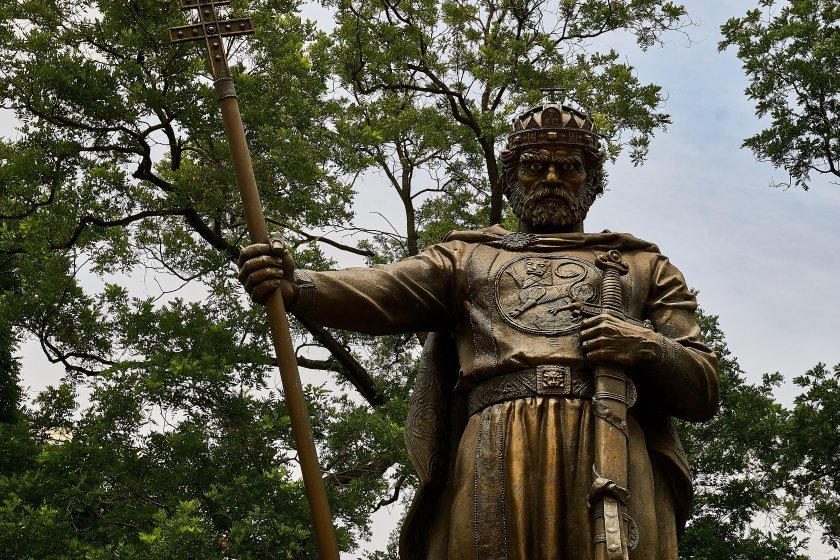King Samuel was the ruler of a large medieval state, which most of modern historical scholarship considers to be the Bulgarian kingdom centered in the territory of the present-day Republic of Northern Macedonia. This is stated in official recommendations of the Bulgaria-North Macedonia Joint Commission on Historical Issues to the governments in Sofia and Skopje for joint commemoration of personalities and events from the countries’ shared history.
The issue of King Samuel was one of the difficult ones to resolve between the two countries and after two years of negotiations, the commission points out that the medieval state of King Samuel, which is considered the Bulgarian kingdom, encompasses most of the lands and population of the Balkan Peninsula and recommends that the two countries commemorate Samuel together.
As regards the holy brothers Cyril and Methodius, the joint commission, composed of Bulgarian and Macedonian historians, states that "their work was developed in the literary centres of Preslav and Ohrid, which were then located on the territory of the medieval Bulgarian state, where their disciples found conditions for work". This, historians point out, gives modern countries a reason to celebrate Cyril and Methodius Day together.
Regarding Saint Clement of Ohrid, the commission concluded that after the Great Moravian Mission of St. Clement, he was sought by "the medieval Bulgarian state and in 886 was sent by Prince Boris-Michael to the area of Kutmichevica, where he laid the foundations of the Ohrid literary school ". In 893, "by order of the Bulgarian king Simeon, he was ordained Bishop of Veleka".
Historians note that "Saint Nahum of Ohrid arrived in medieval Bulgaria after the Great Moravian Mission. He was one of the founders of the Pliska-Preslav literary school. Around 893, he was sent by King Simeon to Ohrid, where he continued the educational activity of St. Clement".







 Чуй новините
Чуй новините Подкаст
Подкаст





















